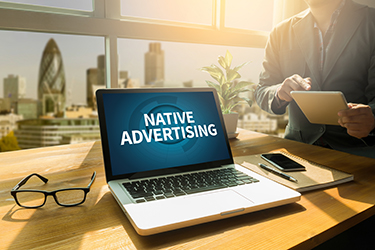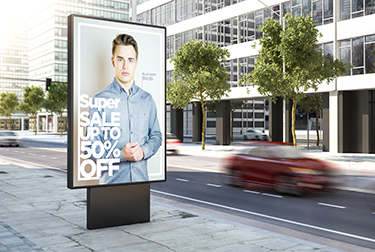Best Traffic Sources for Affiliate Marketing in 2019 | High Paying Affiliate Marketing
As an affiliate marketer, it’s important to know what traffic sources are available to you.

The industry is constantly evolving so what may have worked a year or two ago may not necessarily work today. You want to know what options are open to you to build your campaigns around and to expand existing campaigns with. It’s also important to have multiple options because channels eventually mature and advertising rates go up.
To catch you up to speed, here is a list of the best traffic sources for affiliate marketing in 2019.
1. Pay-Per-Click Advertising
Pay-per-click (PPC) advertising is one of the oldest ways of generating traffic to your site.

The biggest network for PPC is Google Adwords. You basically create search ads based on Google’s keyword queries and bid a specific amount per click. The paid traffic network charges you based on how many clicks you receive to your site. The other major network to participate in is Bing Ads which is owned by Microsoft.
Pay-per-click advertising can be quite expensive as it is very competitive. However, the search ads very targeted and there are many optimization options available to advertisers. In order to succeed with PPC, you must be up to date with all the best practices and optimization strategies. It’s a difficult channel to compete in, but it can be very profitable if you can figure out how to make it work.
2. Social Media Advertising
Social advertising is another great way to drive traffic to your affiliate offers.

Almost everyone is aware of Facebook advertising by now. But you also want to take advantage of other paid traffic social sites like Instagram, Twitter, LinkedIn, and Pinterest. These sites allow you to target based on various factors such as keyword searches, audiences, interests, and retargeting. While costs are going up, these platforms still tend to be cheaper than Google Adwords.
For the most part, these sites focus on audience targeting. This means that you really have to do your research and understand your demographics. Facebook currently offers the most custom targeting options. They even use AI to help you expand on your existing audience and discover new ones. As a result, the best place to start your ad campaign is on Facebook.
3. Search Engine Optimization (SEO Marketing)
Search engine optimization (SEO) is the strategy you want to go with if you are okay with not getting traffic right away and want to bank on long term growth. With SEO, you are getting organic traffic from Google. Your website is listed in the search results. The results are based on various ranking factors like your site’s loading speed, the number of links pointing to your site, relevance, the domain age, abandon rates, and other factors.

A big part of getting organic traffic is creating content. You’ll need high-quality content for your pages and for promotional purposes. This includes articles, videos, downloadable documents, podcasts, blog posts, and more. You want to use everything in your arsenal to get the word out there about your site. This is what results in links going to your site which tend to be the strongest ranking factor. While it’s one of the most reliable free traffic sources, SEO campaigns can require months of work until you start seeing results.
4. Social Media Marketing
If you prefer to work with free traffic sources, social media marketing is another great addition to SEO.

The whole purpose of this strategy is to build a large following on sites like Facebook, Instagram, Twitter, LinkedIn, Pinterest, and YouTube. This will require you to create posts that add value, engage your followers, and work with other influencers in your industry/market.
Like SEO, this strategy requires a lot of time. It can take months to build up a large following on these sites. This can be a lot to juggle since every platform is a little different and you have to post on a regular basis. You’ll have to learn the nuances between each platform and continue creating quality posts to keep your followers hooked. Once you do build a large following, you’ll be able to monetize your social profile with your affiliate offers.
5. Contextual Advertising
Contextual ads are basically an advertisement blocks that show up in the context of the content.

The most common networks for running these types of ad campaigns are Google and Microsoft pubCenter. Your advertisements are displayed in a small text or banner format on various pages. These pages are on partner sites which are sites that run Google Adsense for monetization purposes. Like the PPC ad programs, you are charged on a per-click basis.
There are other networks you can various types of contextual ads on including Media.net, AdBuff, and Chitika. It’s important to note that advertisers tend to see mixed results with these networks. There are also fewer educational resources on how to make your ad campaign work for these networks. Therefore, you want to start with the major networks like Google and Microsoft before experimenting with these alternative networks.
6. Native Advertising
Native ads are advertisements that look like regular articles on media sites.

They are designed to take on the look, feel and function of the publisher’s site. A good example of native ads are related article mentions on CNN. While they are marked as sponsors for the site, the reader isn’t able to tell that it wasn’t an article created by CNN until later.
Native ads work great for affiliate marketers if they know their numbers. You are charged on a CPM basis which means a specific rate for every 1000 views you receive. To make native campaigns work, you have to make sure that it reads like an article, is authoritative, adds value, and matches the voice of the publisher site. The most popular native networks include Revcontent, Taboola, Outbrain, MGID, and Yahoo Gemini.
7. Display Advertising
While this is the oldest format you’ll find on the list, it’s still an effective way to reach your target customers.

Display advertising networks will show your ad in various ways including banners, blog posts, pop-overs, pop-unders, exit pop-ups, mobile app ads. While this can be disruptive, the whole point of display advertising is to get the most exposure and reach you can possibly get.
This is probably not the best traffic source for you if you are working with a very niche offer. If you are marketing a broad offer like weight loss, dating and health, campaigns on these networks seem to work better. Some of the popular networks include BuySellAds, Adblade, and Advertising.com. You can also choose to approach site owners independently to buy an advertising spot instead of working with these networks.
8. Email Advertising
One of the most underutilized traffic sources is email ads.

There are many email newsletters (often called ezines) publishers that will sell advertising space in their newsletters. Some will often rent out their list for an email blast. In many cases, it’s often better to generate leads from these campaigns rather than redirect users directly to your affiliate offer.
It can be challenging to find a list of publishers to advertise with. One of the more reliable sources is called Directory of Ezines which is run by Charlie Page. Alternatively, you can look for email newsletters publishers on your own to see if they’re open to selling you a sponsorship spot. But be on the lookout for lesser-known email ad networks as well. Many affiliate marketers have reported using various networks with varying degrees of success.
Conclusion
Whether you’re a new affiliate marketer trying to figure out how to drive traffic to your offers or an experienced affiliate a marketer looking to expand your campaign, this list will serve as a valuable resource.
It’s always best to start with the most reliable networks before you expand on to lesser-known traffic sources. This is especially the case if you’re looking to promote a niche offer.
Another thing you’ll want to do is to ask your affiliate manager to raise your commission rates. Sometimes you will have to negotiate with your affiliate manager to get higher rates. But if you prove that you can deliver on your end, managers won’t hesitate to give you the pay raise you need to make your campaigns work.
No comments:
Post a Comment